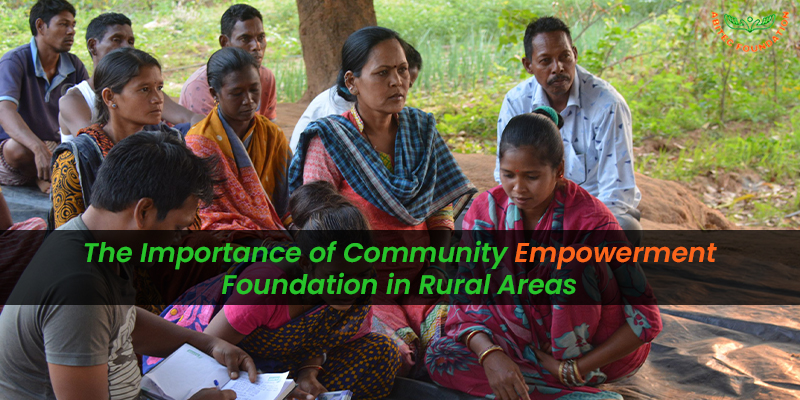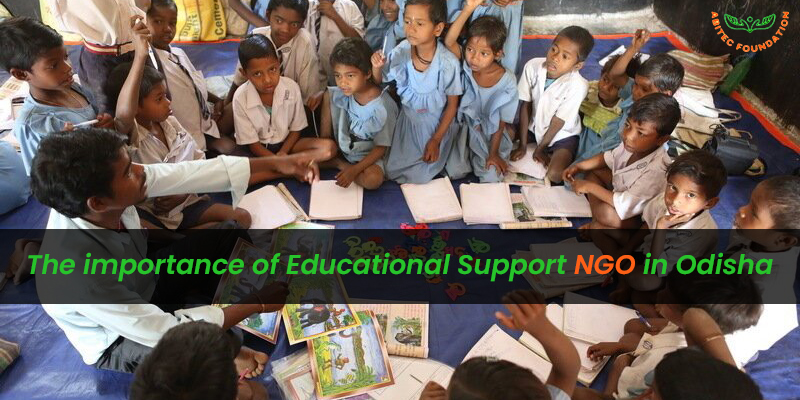Community empowerment is more than a project or program. It’s simply about providing people with the right tools, knowledge, and confidence to shape their own lives. In a world where inequality is growing, job opportunities are limited, and climate challenges are rising, this approach is relevant and necessary. A small village where women lead local businesses, youth speak confidently about their dreams, children walk into classrooms every morning, and neighbours join hands to solve everyday problems. This isn’t just a hopeful vision – it’s the true meaning of community empowerment.
In today’s blog, we will dive deeper into community development and its relevance to the local communities of India. Keep reading to find out more.
But first…
What Is Community Empowerment?
In simple terms, community empowerment is the process of enabling people to take control of their development. It teaches them that, instead of waiting for outsiders to bring about change, communities can lead that change themselves using local skills, voices, and solutions. This concept is most relevant in underprivileged or rural areas, where a lack of resources coincides with limited opportunities for the people.
Some of the key principles of community empowerment are:
- Active Participation where everyone has an opinion in decision-making.
- Leadership qualities that encourage people to take on leadership roles and initiate change.
- Ownership allows them to take responsibility.
- And, capacity building teaches them basic life skills to solve problems easily.
Why Community Empowerment Matters So Much Today?
In short, traditional development often employs a top-down approach. Outsiders come, set up projects, and leave, and the people in rural areas use them as they are. However, the problem is that many well-intentioned efforts failed to create a lasting impact because they didn’t listen to the people they wanted to help.
In today’s world, where we face increasingly complex challenges such as climate change, unemployment, inadequate education systems, rural-urban migration, and widening social gaps, we need more people-powered solutions that enable them to address or at least consider these issues and their potential solutions.
Here are the reasons why community empowerment is essential today:
- Long-Term Impact
Community empowerment means there will be empowered communities that don’t need to or want to wait for help. They learn to help themselves. This is long-term progress, not temporary results and development. - Improved Equality
Empowerment gives a voice to everyone, especially women, youth, and communities that are mostly excluded from society, promoting fairness and dignity for all. - Stronger Local Economies
Community empowerment, when combined with skill-building and job support, enables individuals to start small businesses, find employment, and increase local income levels, thereby improving their financial and economic conditions. - Better healthcare and educational facilities
When communities are empowered, it allows people to take initiatives, understand the importance of education and healthcare facilities, and send their children to schools or local educational institutions, seeking professional medical help instead of ignoring their health and hygiene issues.
- Strong Community during crisis
Community empowerment motivates people to respond to natural disasters or pandemics that can cause massive loss if not handled effectively. It not only helps them respond more quickly and save lives without compromising, but also helps them recover faster.
So, How Does Community Empowerment Work?
Empowerment is a step-by-step journey of collaboration, consistency and trust. In such cases, NGOs or foundations like Abitech Foundation help in the following ways:
- Listen First for Assessment
Since NGOs bring about the change, they start by understanding the people and their views or issues. NGOs and foundations talk to locals, listen to their challenges, aspirations and ideas. - Workshops and Training
Based on their specific needs, these foundations develop workshops and training programs covering a range of topics like farming, tailoring, financial literacy, digital skills, health and more, tailored to the community’s needs. - Empowering Local Leaders
We help communities identify and support natural leaders, especially women and youth, to drive their change and become independent and have a stable income. - Self-Help Groups
These small groups promote savings, microloans, mutual support and entrepreneurship, through which people help each other. - Awareness
Most people from rural areas are unaware of their rights. NGOs ensure they are informed of their fundamental rights to healthcare, education, clean water, and government benefits. Awareness is achieved through visuals, conversations, and other means that capture the attention of the communities. - Ongoing Support and Feedback
Finally, NGOs help communities set up training programs to monitor their progress, so growth is tracked and adjusted over time.
Role of a Community Empowerment Foundation
These organisations bridge the gap between underprivileged communities and their potential. The NGOs and foundations:
- Meet local panchayats and discuss the issues.
- Organise workshops, camps and awareness programs to spread knowledge.
- Raise funds and distribute them to those who need them.
- Document the change and share with other communities to inspire them to bring change too!
- Finally, they collaborate with the government to develop and implement policies that are more effective and applicable to these communities.
Where can they make the most impact?
During this process, the organisations focus on bringing change in the following areas:
- Education
Education is for everyone. Social workers from these foundations focus on getting children enrolled again, building learning centres run by trained volunteers and finally, getting parents involved in school activities.
- Women Empowerment
Since women’s empowerment is also a societal shift, foundations also build women-led SHGs and cooperatives, offer legal literacy and rights awareness and teach communities more about digital and financial independence.
- Livelihood & Skills
They organise vocational training: tailoring, carpentry, IT, farming, crafts, which is effective in supporting small businesses and job placement programs. They also promote eco-friendly products and sustainable trades.
- Health & Hygiene
Foundations take care in developing positive training for local health workers on nutrition, hygiene and disease prevention. They also organise medical camps and check-ups, as well as menstrual health and maternal care.
- Environment & Sustainability
These communities are taught about tree-planting and water conservation drives, introducing clean energy like solar lighting or smokeless stoves and educating them on waste segregation and eco-practices for a greener and healthier environment.
- Civic Participation
Finally, they work on awareness of voting rights and village governance, access to ration cards, pensions and schemes.
Bottom Line
The Community Empowerment Foundation is an essential group of activists who work with communities that are unable to improve their lifestyle on their own. Organisations like the Abitech Foundation develop strategies and workshops that encourage youth and women to stand up for their rights and claim them, while empowering them to take the lead.
Join us while we change the world for the better, and call us at: 7608062303 or 9853223454



